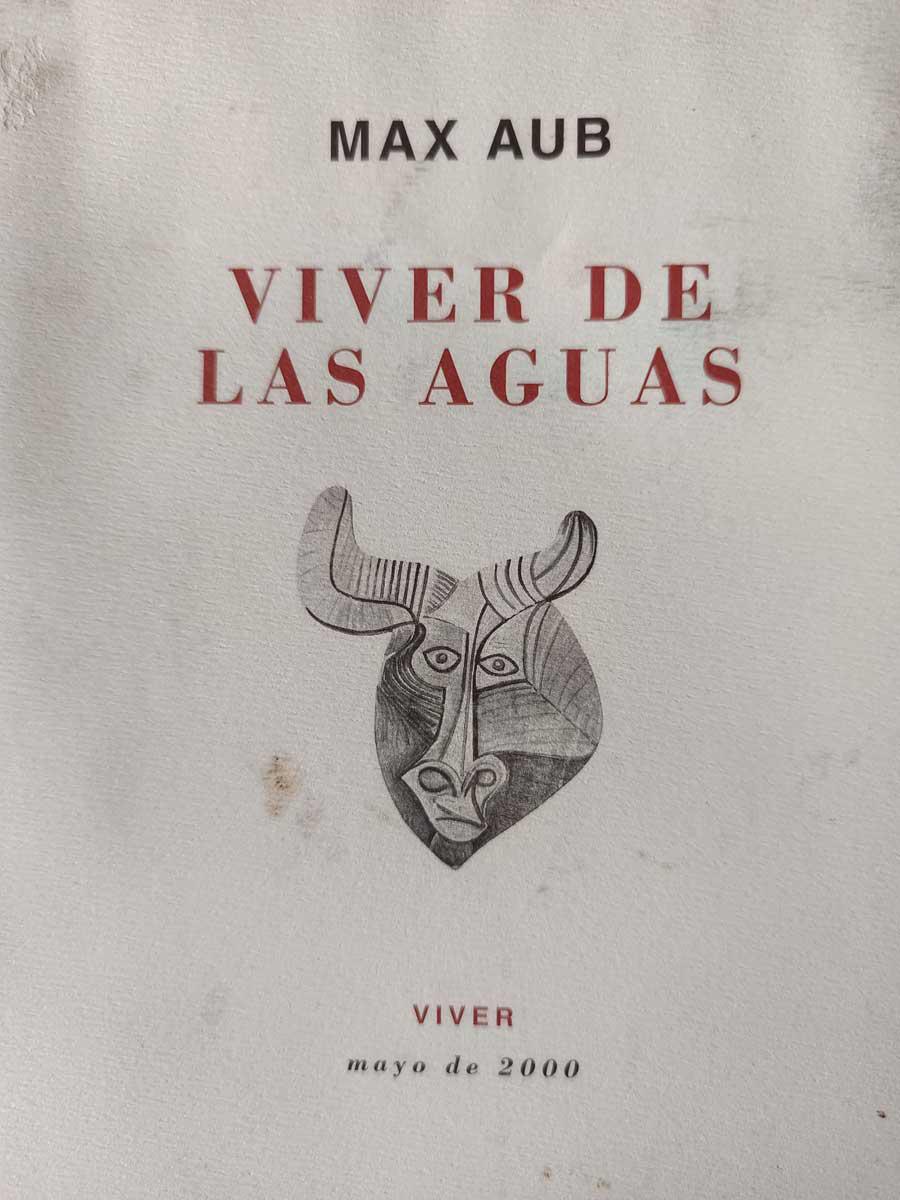‘The little water is made to run with the smell of the earth. Still water is scary. Living irrigation ditch of Viver, unwind, let it catch you, let the backwater reach you! Let it eat you alive! Shake and stir your eggs and lichens as if they were your own tail!’
‘Field of almond trees’
Max Aub
Max Aub spent the summer of 1935 in Viver, from June to September, as was customary at the time. They did not come to Viver in the summer of 1936 because Perpétua Barjau, Max's wife, was pregnant. She gave birth to Carmen, their third daughter, at the end of July. Before the summer of 1935, they used to spend their summers in Las Arenas in Valencia. Their daughter Elena's lung disease is the reason why doctors advised Max to seek a drier climate and higher altitude. At first, they chose the ‘El Paraíso’ spa in Manzanera, but they soon changed their holiday destination to Viver. The reasons for the change seem clear. In 1914, when the First World War broke out, the Aub-Mohrenwitz family, of Jewish origin, emigrated to Valencia and settled there. He enrolled at the Luis Vives Institute, the only secular school in Valencia, where he met and studied with José Gaos, Genaro Lahuerta, Fernando Dicenta, Manuel Zapater... He remained close friends with all of them throughout his life. This friendship continued in exile. It was precisely his friendship with Manuel Zapater, the property registrar in Viver in the years before and after the Civil War, that led him to swap his holidays in Manzanera for Viver. They shared a holiday home on Calle Serrallo, with Max and his family on the ground floor and Manuel Zapater on the first floor with a garden. Very close to this place was the large house owned by the Dicenta family: the ‘Los Martínez’ villa. The Dicenta brothers, Fernando and Rafael, spent their summers in this villa, and it was here that the Aub, Dicenta and Zapater families spent most of their time.
They could not have imagined at that time what would change their lives a year later, when the war would shatter everything that had seemed normal. Max Aub would immortalise Viver as the beginning, the first chapter of Campo Cerrado, and the end of El Laberinto mágico, the series of six novels that best reflects the cruelty and senselessness of an uncivil and ruthless war.
In 2000, the Viver Town Council declared Max Aub an honorary son of Viver in a ceremony attended by his daughters, who inaugurated a street named after him.
Since then, there have been many events in which Max has been the centre of attention, such as:
Theatrical performance of Max Aub's ‘Viver de las aguas’ at the cultural centre.
Creation of the literary route ‘The Viver that Max Aub knew’.
Conference ‘About l'Espoir’. Aviation in Viver during the Civil War.



